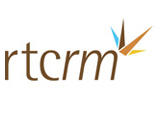Workplace Digital Etiquette 101
As another class of newly minted college graduates prepares to enter the workforce, they will be faced with navigating what is and is not appropriate when it comes to digital etiquette in the workplace. It may seem trivial, but knowing when it’s OK to use your smartphone at work can make the difference between getting a promotion and being passed over. For jobseekers, it can influence which candidate gets the job and which ends up in the “no” pile.
Kara Reinsel, Senior Strategist, Digital Integration and Innovation
 Key Information
Key InformationAs you become a part of the working world, you will be faced with a set of professional etiquette dilemmas you may not have been well prepared for (through no fault of your own). Colleges and universities do an excellent job educating students in a particular field of study. However, they fall short when it comes to teaching essential life skills such as “Should I friend my boss on Facebook?” Without this information, you could unwittingly fall into digital etiquette traps while interviewing for a job or after you’ve started a new position.
According to a CareerBuilder survey, 71% of hiring managers said the biggest mistake job candidates make during an interview is answering a cell phone or texting during the interview.
1 Many hiring managers said they would end the interview immediately if this happened to them. So with that in mind, turn off your cell phone while on a job interview. That is, unless you
don’t want to be hired, in which case using your cell phone during an interview is a surefire way to ensure that you don’t get the offer.
After the interview, be sure to send a thank-you note. Eighty-nine percent of hiring managers say it’s fine to email a thank-you note and, in fact, half of them prefer it to be an email.
2 If you don’t send a thank-you note, you are putting yourself at risk—22% of hiring managers said they are less likely to hire someone if the candidate doesn’t send a thank-you note.
3 When it comes to digital etiquette in the workplace, its better to err on the conservative side, at least initially. Leave your cell phone at your desk. It’s unnecessary to bring it to meetings, and if you use it you run the risk of being perceived as inattentive, or worse, an annoying Millennial. Resist the urge to friend all of your new coworkers on Facebook. Under no circumstances is it OK to bash your company or coworkers in your Facebook status or on your Twitter account, unless you want to get fired. Think twice before making your employer-provided laptop your de facto personal computer. Anything stored on the laptop technically belongs to your employer, not you. Avoid using your work email as your personal email account. Again, your company owns all of the data—contacts, emails from your mom, shipping confirmations from Zappos, etc.—within the email account. And eventually you’ll switch jobs: save yourself the headache and use your work email only for work. Finally, refrain from checking your personal email during meetings..
Implications & Action ItemsCommon sense can help you avoid the majority of digital etiquette challenges:
- When in doubt, turn off your cell phone.
- Get to know your coworkers first as professionals, not as automatic (online and off-line) BFFs.
- Don't use social media as a channel to share your opinions of your employer, your job or your colleagues.
1 CareerBuilder.com, “Employers Reveal Outrageous and Common Mistakes Candidates Made in Job Interviews,” January 12, 2011
2 CareerBuilder.com, “More Than One-in-Five Hiring Managers Say They Are Less Likely to Hire a Candidate Who Didn’t Send a Thank-You Note,” April 14, 2011
3 Ibid